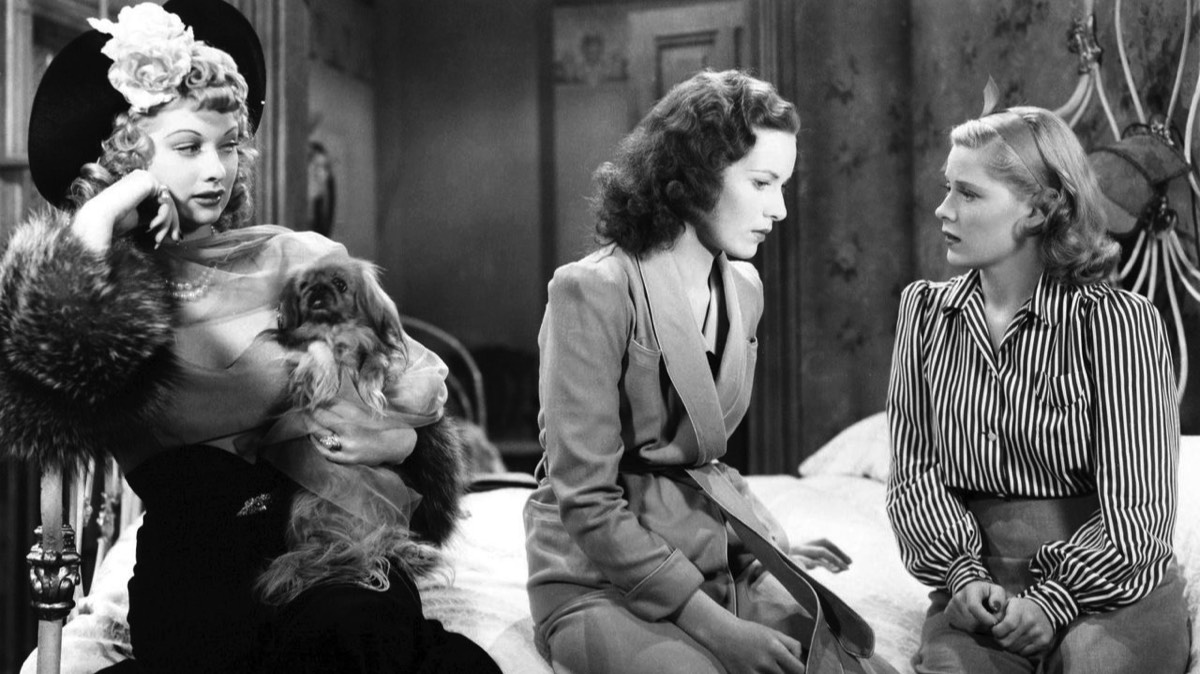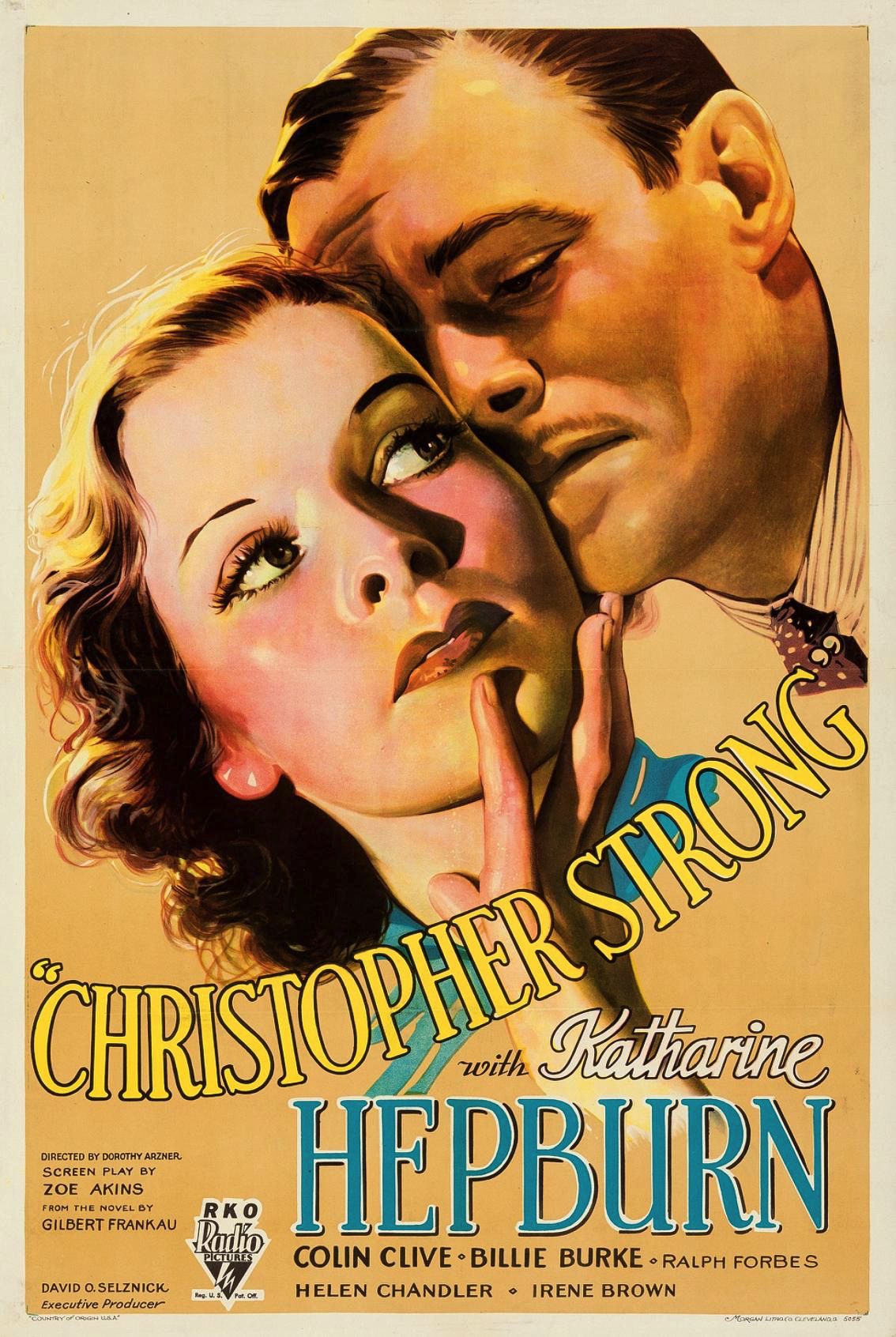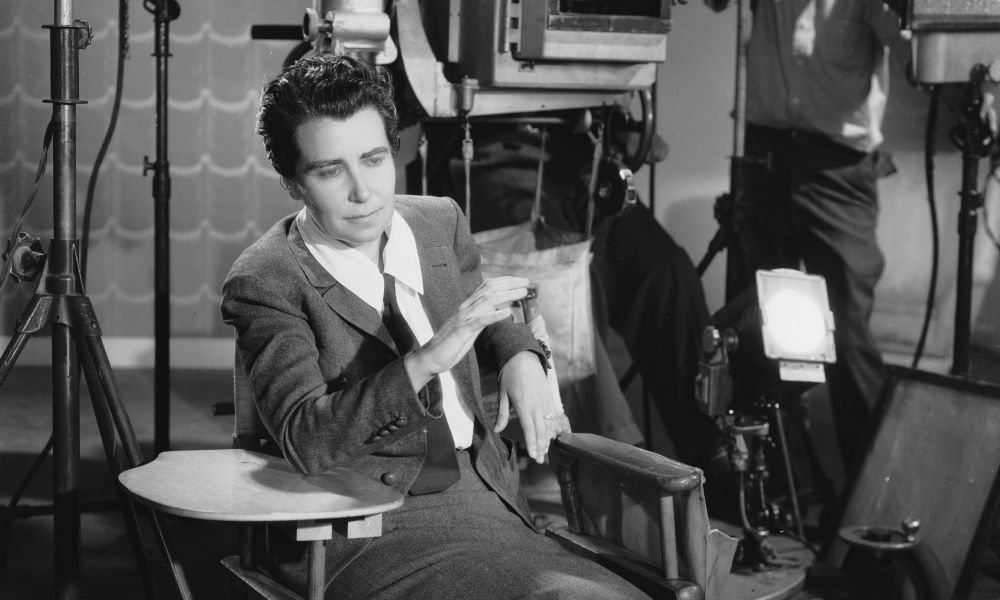"While Arzner directed ‘‘women’s pictures’’—classic Hollywood fare—she differed from other directors of the genre in that, in place of a narrative seen simply from a female point of view, she actually succeeded in challenging the orthodoxy of Hollywood from within, offering perspectives that questioned the dominant order." - Lilie Ferrari (The St. James Women Filmmakers Encyclopedia, 1999)
Dorothy Arzner
Director
(1897-1979) Born January 3, San Francisco, California, USA
(1897-1979) Born January 3, San Francisco, California, USA
Key Production Country: USA
Key Genres: Drama, Romance, Comedy, Romantic Comedy, Comedy Drama, Melodrama
Key Collaborators: Fredric March (Leading Actor), Billie Burke (Leading Actress), Zoe Akins (Screenwriter), Tess Slesinger (Screenwriter), Jane Loring (Editor), Viola Lawrence (Editor), John Leipold (Composer), Van Nest Polglase (Production Designer)
Key Genres: Drama, Romance, Comedy, Romantic Comedy, Comedy Drama, Melodrama
Key Collaborators: Fredric March (Leading Actor), Billie Burke (Leading Actress), Zoe Akins (Screenwriter), Tess Slesinger (Screenwriter), Jane Loring (Editor), Viola Lawrence (Editor), John Leipold (Composer), Van Nest Polglase (Production Designer)
"Although there had been women directors in silent times - Lois Weber, Cleo Madison and Mabel Normand among them - Dorothy Arzner was for some years in the 1930s and 1940s Hollywood's only woman director… In 1927, Paramount gave her a chance at direction with Fashions for Women, and the majority of her films with this studio (from 1927 to 1932, her best period) are social comedies with women as the central figures - 'women's pictures' perhaps, but with a bite and astute observation not always evident in similar vehicles directed by men." - David Quinlan (Quinlan's Film Directors, 1999)
"Dorothy Arzner occupies a unique space in film history. Working her way up the ranks from screenwriter to editor, she eventually became – for a time – the only female director working within the Hollywood studio system. Her films offered audiences new approaches to storytelling. Her protagonists were snappy and headstrong, subverting traditional gender roles on a mission to determine their own identity. She directed and co-directed 20 films, and her legacy of technical innovations is embedded in the fundamentals of filmmaking, which she later taught to students, including Francis Ford Coppola, at UCLA." - Caroline Cassin (BFI, 2024)

Dance, Girl, Dance (1940)
"Arzner's best work explores the economic, sexual and social options available to women living and working in patriarchal society… If there was little that was stylistically radical or even genuinely 'feminist' in Arzner's films, her preference for strong-willed, independent heroines and witty dialogue, often at the expense of patriarchal customs, gave her work an unusual, interesting satirical edge." - Geoff Andrew (The Director's Vision, 1999)
"In the 1930s, Arzner’s films gave female stars intelligent, complex roles centring around moral dilemmas and a cynical attitude to marriage. In 1933’s Christopher Strong, Katharine Hepburn stars as a dashing aviator in love with a married man; in 1936’s Craig’s Wife, Rosalind Russell plays a housewife whose fierceness masks her vulnerability; and The Bride Wore Red features Joan Crawford as a cabaret singer caught in a Cinderella romance." - Pamela Hutchinson (Little White Lies, 2020)
"Dorothy Arzner was a professional director of American movies who worked regularly for over a decade, and was a woman. (Only Lois Weber could have made the same claim.) She was not a great filmmaker, and her pioneering should not inflate her reputation. But she turned out some fascinating pictures and clearly was able to pursue a personal if undoctrinaire interest in the issue of women’s identity. That said, one has to confess that she generally played according to the Hollywood concept of “a woman’s picture.” She did not stretch or threaten the system." - David Thomson (The New Biographical Dictionary of Film, 2010)
"When I went to work in a studio, I took my pride and made a nice little ball of it and threw it right out the window." - Dorothy Arzner
Selected Filmography
{{row.titlelong}}
"Fan Club"
These film critics/filmmakers have, on multiple occasions, selected this director’s work within film ballots/lists they have submitted.
These film critics/filmmakers have, on multiple occasions, selected this director’s work within film ballots/lists they have submitted.


